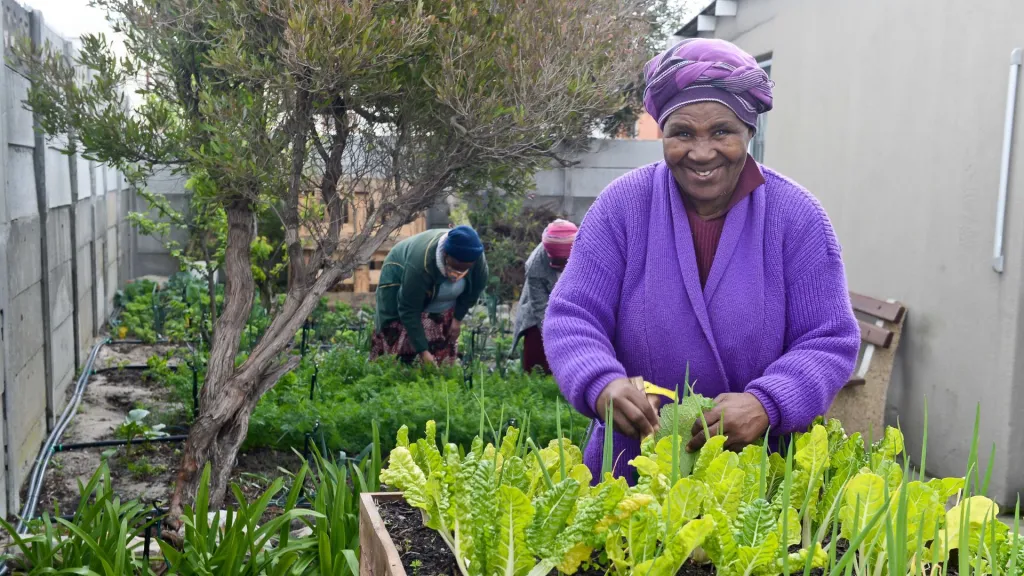Community gardens play an important role in building strong, healthy communities. They provide fresh, nutritious food and bring people together. By growing their own food, community members can network, creating a more connected and sustainable community.
‘Igalelo Labafazi’ is women-led community gardening project, based in Makhaza, Khayelitsha, in the Western Cape. In 2020, the COVID-19 pandemic left many people in our community without jobs and struggling to feed themselves and their families. As a result, many people would go to bed on empty stomachs during that time. It is at such times that ‘Igalelo Labafazi’ intervened and helped the community.
The project has taught many women in the community of Makhaza gardening skills. It has taught them about ways to start their own gardens, at their homes. Importantly, the project helps the community with affordable nutritional food. “Through this gardening project, I have gained planting skills and [learned] how to work with the community,” said Noluthando Memani a member of the gardening project.
Most people in Makhaza suffer from diabetes and they need access to healthy food. That is why growing organic vegetables and teaching people skills to grow and sustain their own gardens is important.
“I’ve been able to harvest my vegetables and have stopped buying them from [the] big supermarkets. Our community is now thriving through growing our own food and enjoying the benefits of sustainable living,” said Nondwe Mfundisi a resident from Makhaza.
The project also provides seedlings, compost, seeds, and netting for community members to protect their gardens. By doing so, the project empowers the entire community to take control of their food security and health. This community garden project continues to bring hope by positively impacting Khayelitsha.
This article was submitted on 23 January 2025. You may republish this article, so long as you credit the authors and Karibu! Online (www.Karibu.org.za), and do not change the text. Please include a link back to the original article.


 Download PDF
Download PDF